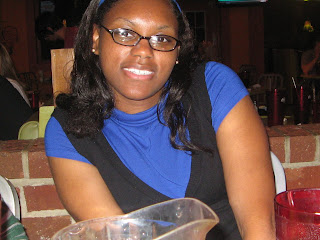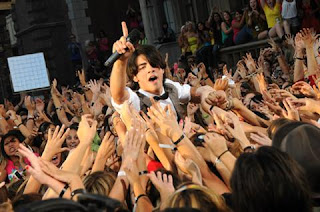Introduction:
For this project I looked up the EPI family budget for a family living in Savannah, Georgia. My sample family consisted of two adults and two children under the age of seven. The EPI calculator gave me an average of monthly and yearly cost for the basic needs of a family including: housing, food, childcare, transportation, health care, other necessities, and taxes. I have done my own research and compared them to the averages the EPI calculator gave. In the end, I added up my yearly total and compared it with the Poverty threshold and the budget the EPI calculator gave. Under each monthly category, I explain how I came up with my estimate and provide some extra sub-categories where needed without going over the basic need criteria.
Monthly Housing:
EPI average$769.00My research pricefrom $645.00
To obtain this price I looked up local available apartment listings in Savannah on appartmentguide.com. I chose a townhouse, 3 bedroom apartment with 2 bathrooms. I selected a 3 bedroom apartment for in case the children are not the same sex. Since the family will plan on staying for a while, it will be proper that the child have their own room as a teen boy or girl. The parents will share a room with their own bathroom. The children will also share their own bathroom. The apartment that I am basing my price off of is as follows:
Live Oak Plantation
8505 Waters Ave
Savannah, GA 31406
There is a possibility that the apartment may be a little more expensive depending on whether I take a newly renovated apartment or one that needs a little fixing up, but the price above is the average price renters pay for a townhouse style apartment with 3 bedrooms and 2 bathrooms. It is a 976 square foot floor plan, so there is not an excessive amount of space, but it is sufficient. There is also no washer and dryer connection inside the apartment, but there is a laundry facility in the complex. From my own personal knowledge of the place, I know that it is located in a traffic zone area and while it is a safer location for its price it is located in an area with a high population of illegal immigrants.
Monthly Food:
EPI Average
$643.00
My estimate price
$486.17
To get an estimate price I created a mock list of items that may be essential for weekly living, and then I multiplied that by 4 for the 4 weeks in a month. I also factored in $100.00 to the monthly total for price fluxuation and to accommodate the price change if they decide to buy items deviating from the list. For example, one week they may substitute chicken and beef for salmon and ribs which cost slightly more than other meats. This also covers times where they may need to buy more food because things like spices, peanut butter, cooking oil, or flour goes low. These items don't necessarily need to be bought monthly, but can change the weekly price of shopping when it is time to replenish them. When creating the list I considered nourishing food for growing children and having a healthy family. Most of the prices are estimates from my own shopping experiences, while I got others from prices that stores advertised on the internet. Once the monthly total was added up I added the 7% sells tax to the price. My mock list and math is below:
Sample Weekly Shopping List
1 gallon of milk $1.99 (Walmart 2009)
2 bags of bread $5.59 (based on internet average for 2009, $2.79 per)
a dozen eggs $2.89 (based on internet average for 2009)
2lbs chicken $5.58 (an observed estimate based on my shopping)
2lbs of beef $8.66 (based on internet average for 2009)
2 cabbages $1.66 (an observed estimate based on my shopping, 83 cent per)
4 pre-packaged salads $15.68 (based on internet average for 2009, $3.92 per)
5 packs of frozen vegetables $18.99 (an observed estimate based on my shopping, $3.60)
2 big bags of rice $6.50 (an observed estimated based on my shopping experience, $3.25)
1 box of pasta $4.00 (an observed estimate based on my shopping experience)
1 gallon of orange juice $3.75 (an observed estimate based on my shopping experience)
1lb of lunch meat from deli $6.00 (an observed estimate based on my shopping experience)
sliced cheese $2.75 (an observed estimate based on my shopping experience)
2lb apples $4.55 (an observed estimate based on my shopping experience)
+$100.00 for variety and price fluxuation
Math: weekly total x 4 = monthly total+100 x tax(.07)= final monthly total
$88.59 x 4= $354.36
$354.36 + $100= $454.36
$454.36 x .07= $486.17
sources:
Monthly Childcare:
EPI estimate
$1011
My research price
$555 (during school year/this one is used for final monthly total)
$795 (during the summer/3 months which is added into final annual total)
To get the price of daycare for two children under 7, I called a local Savannah daycare to find out the cost of before and after school care. I also factored in $75 for incase a late-night or weekend babysitter is needed throughout the month. The childcare service that I used is my research is as follows:
Childcare Network
7360 Hodgson Memorial Dr.
Savannah, GA 31406
The price they quoted me for weekly childcare for one child was $60 during the school year for before and after school. They quoted my $90 for the summer. I took these numbers and multiplied them by two for the amount of children. Then I multiplied them by 4 for the 4 weeks in a month. Finally, I added $75 bucks to the monthly total for babysitting expenses.
Math: price x 2= weekly cost for 2 x 4= monthly total + $75= final monthly total
$60 x 2= $120
$120 x 4= $480
$480 + $75= $555
$90 x 2= $180
$180 x 4= $720
$720 x $75= $795
Monthly Transportation
EPI estimate
$404
My research price
$273
To obtain this price I assumed that the family already owns a paid used car that takes 30 miles per gallon. I also assumed that the children take the bus to school in the morning, but the parents pick them up. The entire family uses this one car for their weekly errands. I first found the cheapest gas price that I could find in the area, which came from a nearby Kroger (located on Abercorn st.). Their price is $2.61 per gallon. Based on my family's experience with a car of the same miles per gallon, it would take about $60 to fill the tank for two busy weeks. I used this to come up with a monthly total of $120 for gas expenses. Since care insurance is mandatory in Georgia, I also had to factor that in. I used the national monthly average for car insurance which was obtained from
http://www.carinsurance.com/. The average monthly price that was given was $153. I also considered that the family only needs minimum coverage for their basic needs. I added this to the gas price to come up with a monthly total of $273.
Monthly Healthcare:
EPI estimate
$407
My research price
$268.18
To get this price I did research on
http://www.ehealthcare.com/ to get a quote. The website required that I put an age in for all members of the family. I made the wife 38 and the husband 39 when filling out information for the quote. The children were 5 and 6. The cheapest healthcare provider that came up was Blue Cross Blue Shield of Georgia. They gave a quote of $268.18 for the POS plan, which is the one I used for the family. The basics of this include a $7,500 deductible, 30% coinsurance, and $30 co-pay. The family will only have to worry about these expenses when they need treatment.
Other Necessities:
EPI estimate
$339
My estimate
$399
Other necessities include items like toiletry, cleaning products, utilities, car maintenance, and unexpected expenses like medicine cost when someone gets sick. Because this category can be interpreted differently by different people, I based my estimate for this off of the EPI estimate. For a family of four, items like soap, toilet paper, laundry detergent, and dish detergent can be used up rather quickly and at an inconsistent rate. This means that the amount they spent on this stuff a month plus items like utilities, car maintenance, and unexpected cost can fluxuate. I feel that the EPI estimate is a sufficient amount for whatever the family considers necessary at the time. If I were to come up with my own estimate, it would probably leave out many important factors. I consider this total the family allowance, which covers the changing necessities for the month and is left up to them to determine have it if spent for the unique needs of each month.
Monthly Taxes
EPI estimate
$385
My estimate
$450
While the EPI estimate it enough to cover elements like Workers Comp, Unemployment, and FICA, it does not consider the risk of under paying, which the family has control over. Since the family can chose how much taxes they have taken out of their paycheck with the W-4 form, they would want to ensure that underpaying does not happen. According to
http://www.census.gov/, the average family of four in America makes about $43,318 a year, while the specific average for the South is $39,823. Most people follow a 22% rule when deciding how much of their yearly salary goes into taxes. For a family making between $39,823 and $43,318, this means that about $3000 dollars should be paid a month. But things like amount of dependants living under one roof and money given to charity lowers the amount of taxes that has to be paid. The family for the experiment makes a more modest salary that would be slightly above the poverty threshold to show how much one can survive off of just considering the basic needs. This safely puts them at an estimate of $450 for taxes a month. This ensures that they are no underpaying and can even mean that they are paid back during incomes tax time if they gave too much.
Final Monthly Total:
EPI estimate
$3959
My researched estimate
$3076.35
Final Annual Total:
EPI estimate
$47,506
My researched estimate
$37636.20
Poverty threshold
$22,050
Poverty threshold based off my researched price of food
$17502.12
My Thoughts:
I am surprised that even considering how much lower my researched prices added up to be, my annual budget total for the bare minimum necessities was incredibly higher than the poverty threshold. While researching, I was shocked to come across prices much lower than the EPI estimate and thought that they could possible add up to be near the poverty threshold. This research shows that food is not a sufficient source to base poverty off of. The US government takes the annual cost of food for a family of four and multiplies it by 3 to state what is considered a sufficient amount to live off of. My own researched poverty threshold calculation shows how absurd that is relative to my sample family's diet, which is not as expense since the children are still young. When doing my research the component of the budget that really surprised me was how low childcare can be. I was expecting this to be one of my more expensive costs, but to my surprise it was the one with the greatest distance from the EPI estimate. It was dramatically low. Overall, I think Savannah is a pretty affordable place to live considering my ability to find almost all of the budget factors at prices lower than the EPI estimate. But even in this town where the cost of living is lower, the poverty threshold for a family of four cannot support them. Just considering necessities alone, my research shows that a family needs about $37,636 to survive. Poverty threshold does not consider the rising gas prices, childcare cost, or insurance because these things were not as big of a factor years ago when the equation was formed. Now the number is just merely an estimate of how much it would cost to eat for three years if prices do not fluxuate. This price does not meet the needs of the modern family that is now required to have car insurance to drive in their state and proper childcare to keep their children from being taken away by Defax if both of them are working.









